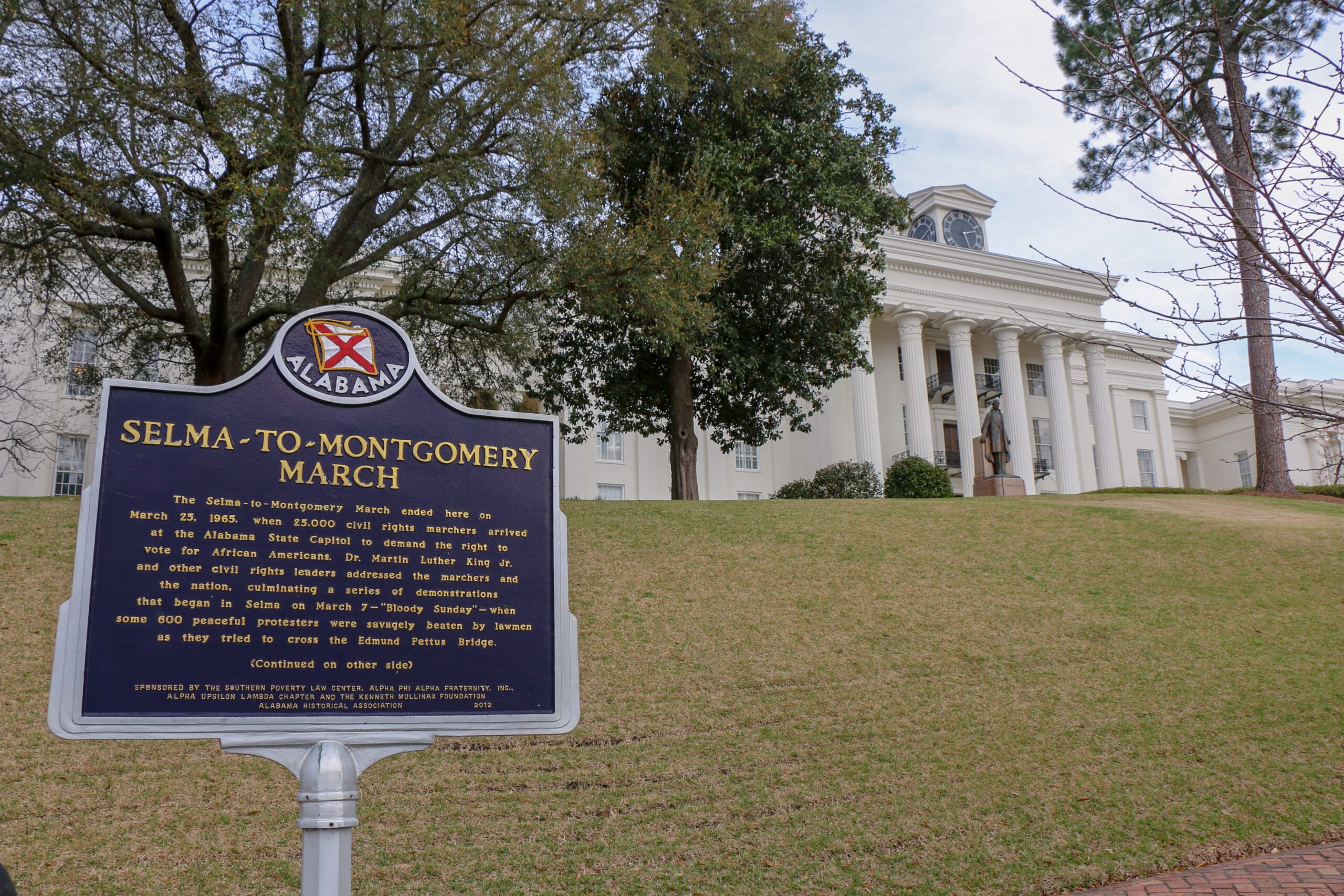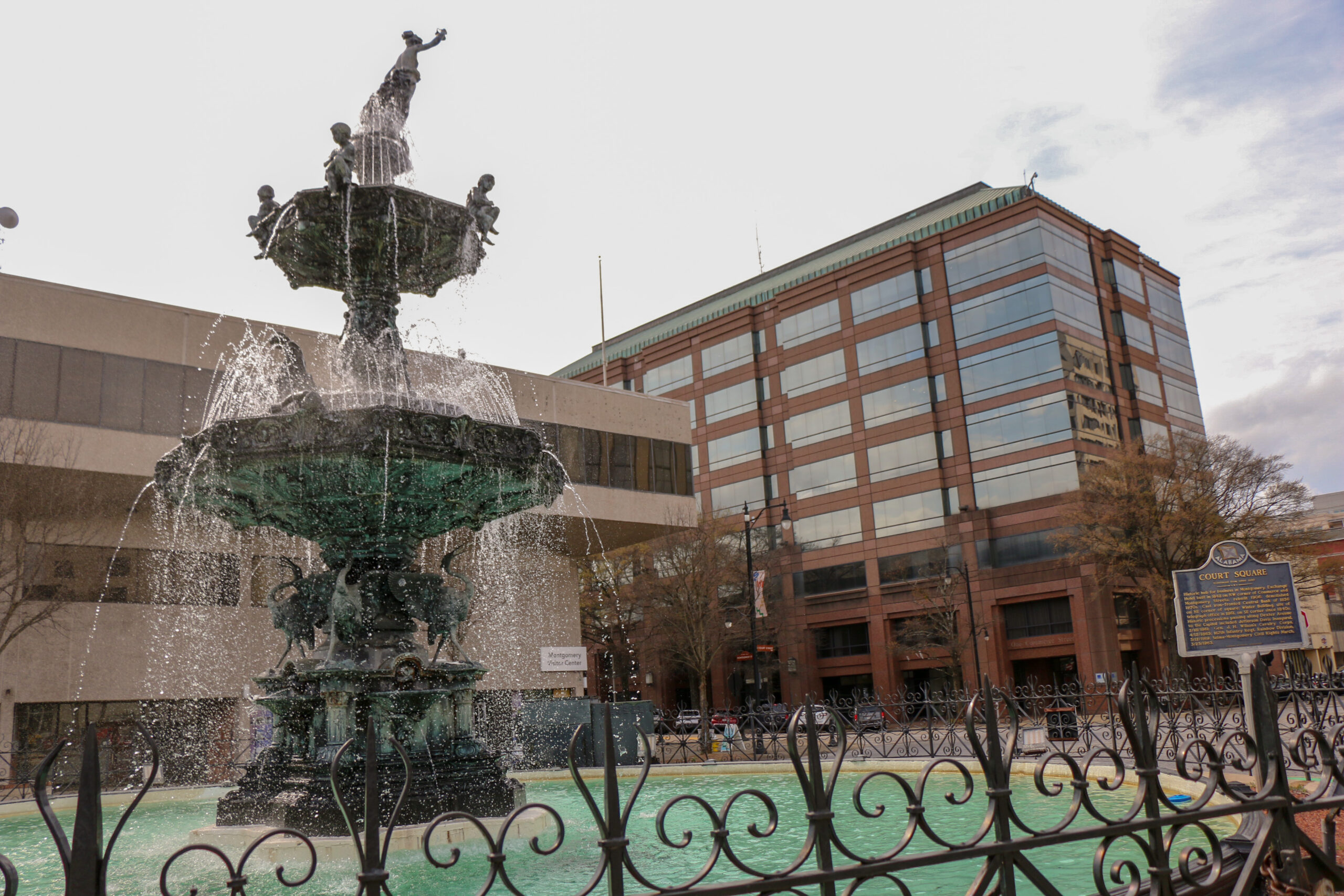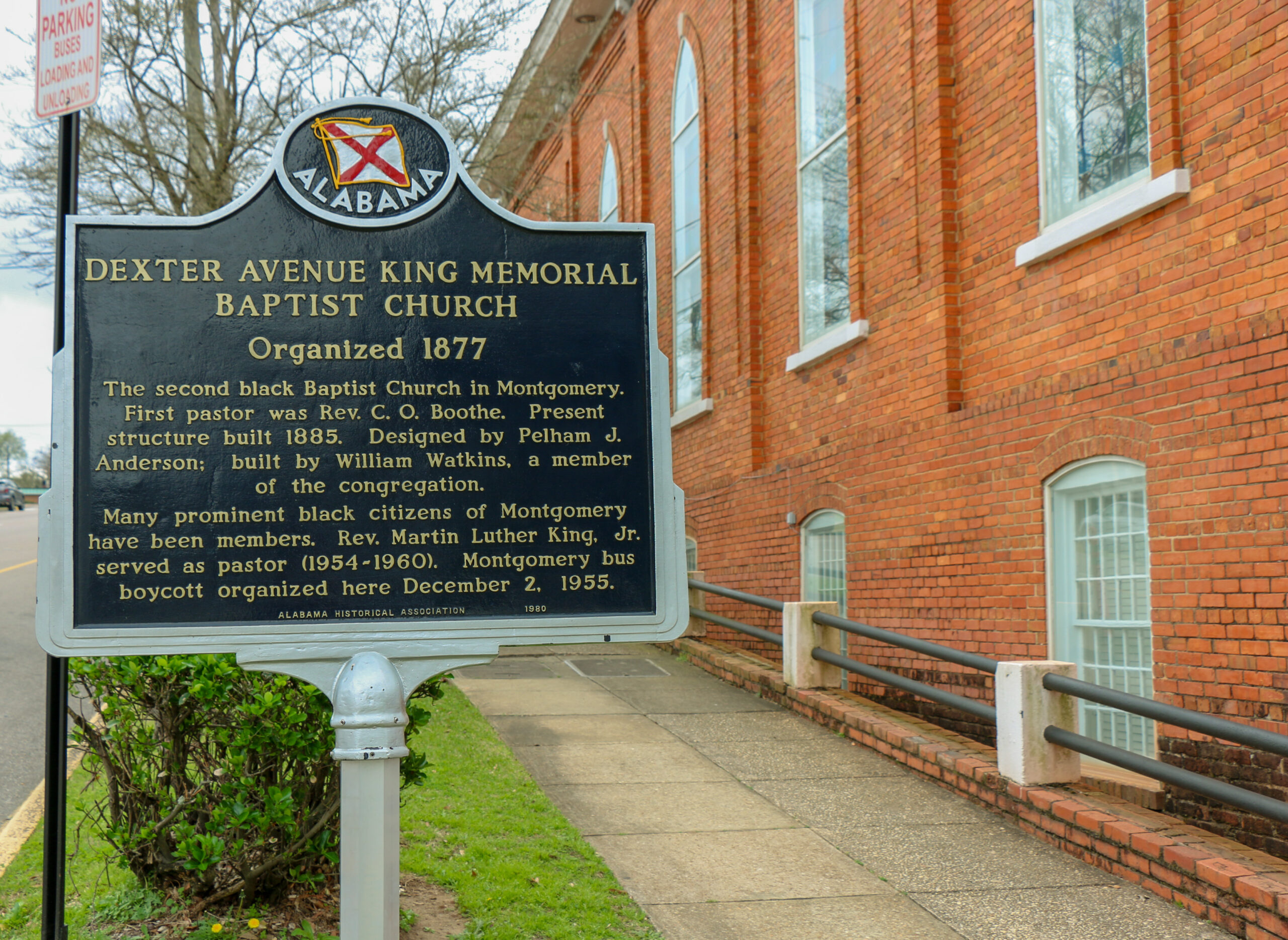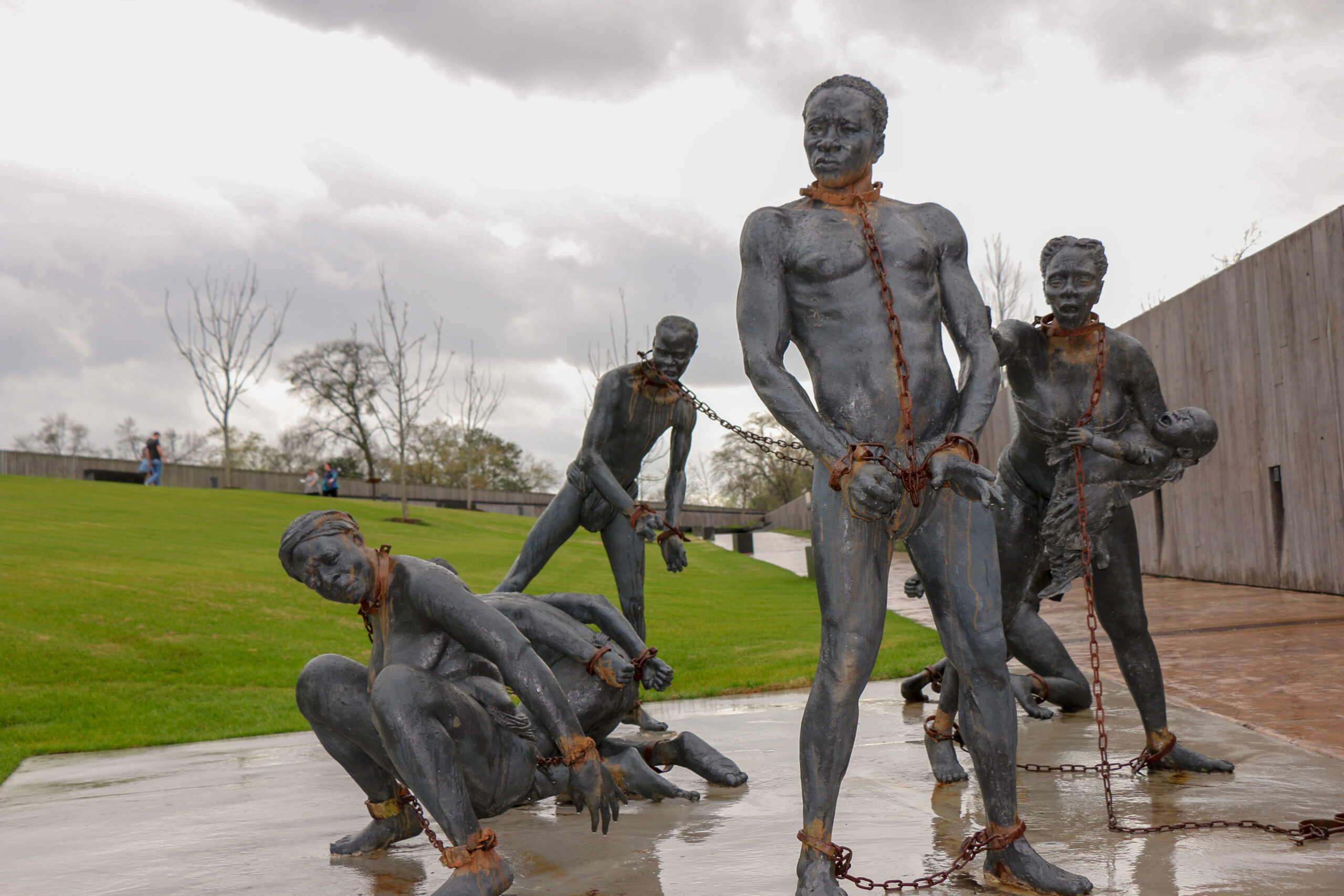BEACONS OF THE BLACKBELT
A Mid-south rc&d tribute and celebration of african-american achievement in our region.




Black History Month is a time to reflect upon and celebrate African-American achievements and their role in making history across nations. Undoubtedly, Alabama is the birthplace of numerous revolutionary ideologies and values encompassing the fight for civil rights and the significance of Black History Month. Many tribulations and triumphs that began the battle for civil equality took place in the Mid-South RC&D Council region.
Our council is located in the heart of Alabama’s ‘Black Belt’; Bullock, Butler, Lowndes, Macon, and Montgomery counties comprise part of the geographical zone known for rich, abundant soils that once fueled a thriving agriculture-based economy. However, poor farming practices, lack of sustainability, and natural causes contributed to the decline of the land, which devastatingly affected our region’s socioeconomics and quality of life. Culturally, the Black Belt symbolizes the long, painful oppression of the Black race, beginning with slavery on some of the South’s most potent plantations, all the way to the civil rights movement where leaders like Martin Luther King Jr., Rosa Parks, John Lewis, and Malcolm X rallied and fought for basic freedoms.
The word “beacon” is defined by Merriam-Webster Dictionary as “a lighthouse or other signal for guidance” or “a source of light or inspiration.” Mid-South RC&D honors and celebrates the many “Beacons of the Black Belt” that inspired and evoked radical social change, courageously defended their freedom, and demanded justice for civil inequality. Throughout Mid-South’s Black Belt counties, many unique living sources of inspiration echo the beauty that is Black History.
bullock county
Bullock County, AL, hosts a variety of African-American historical landmarks and legends. Throughout the area, there are influences of the past in current culture. Bullock County’s dedication to honoring Black History occurs through preservation, memorials, and record-breaking tributes.
wayman's chapel:
Brick-by-brick, Wayman Chapel was constructed in 1882 by the first Bishop of organized A.M.E. Churches, Richard Allen. His work helped establish one of the oldest, most widespread African-American institutions.
record-breaking edith burroughs:
Bullock County native Edith Burroughs was the first black female to win a professional bowling tournament. In her career, she won countless championships and awards. In 1984, Burroughs was inducted into Ohio’s Tri-County Bowling Hall of Fame.
foster-chapman house:
This Moorish-Revival-style manner in Union Springs, AL, is the ancestral home of civil rights activist Virginia Foster Durr. Durr is known for her activism and for working closely with Rosa Parks, Aubrey Williams, E.D. Nixon & Myles Horton.
eddie kendricks birthplace:
One of Bullock County’s Black History beacons is none other than the leading vocalist for the musical group The Temptations, Eddie Kendricks. Before he was one of Motown Records’ biggest success stories, Kendricks’ story and musical legacy began in Bullock County, AL. Born on December 17, 1939, to Johnny and Lee Bell Kendrick, Eddie spent his childhood in Union Springs before migrating to Birmingham, AL.
lowndes county
Lowndes County, AL, is where the heart of the civil rights movement began to beat. In 1965, 80% of the population was Black; however, there were zero registered Black voters. Efforts led by John Hulett, amongst other civil rights leaders, began to pave the way for Black officials and leaders. Revelation rang loud and clear throughout Black communities in the county, and so began the fight for not only their right to vote but also their right to have active power.
As a result, the Lowndes County Freedom Organization was critical to the civil rights movement and laid the framework for the widely-known Black Panther Party. The 2022 documentary Lowndes County and the Road to Black Power, directed by Geeta Gandbhir and Sam Pollard, pays tribute to the groundbreaking civil rights work done in Lowndes County. In addition, the Lowndes Interpretive Center in Hayneville is dedicated to those who marched bravely from Selma to Montgomery.
macon county
Macon County, AL, is home to some of the most prolific and unique Black History landmarks and legends. History lives on every corner throughout the county. Whether on campus at Tuskegee University or visiting memorials and landmarks, one will be sure to feel the presence of those such as Booker T. Washington, George Washington Carver, Otis D. Wright II, Ralph Ellison, Rosa Parks, Sammy Younge Jr., Zora Neale Hurston, or the many Tuskegee Airmen, who fought for their rights and freedom in years past. Macon County’s dedication to honoring Black History lives through preservation, education, music, and monuments.
booker t. washington's impact:
Pioneering African-American Civil Rights leader, author, educator, and founder of Tuskegee University, Booker T. Washington is a true beacon in Macon County’s rich Black History. Washington built Tuskegee University from the ground up; he marketed the school’s concepts, recruited investors, and educated countless students on various skilled trades.
Today, the university is ranked in the top three of the nation’s best Historically Black Colleges and Universities by U.S. News & World Report.
tuskegee university and the tuskegee airmen:
Booker T. Washington’s activism and legacy ensured the success of Tuskegee University to become one of the most renowned institutions. In 1939, Macon County, AL, was already on the map for leading Black education initiatives; the passage of the Civilian Pilot Training Program only propelled these efforts. Despite civil rights challenges, Tuskegee University trained over 1,000 African-American aviators at Moton Field who served in World War II. To learn more or experience the magic at Moton, visit the Tuskegee Airmen National Historic Site.
lionel richie and the commodores:
Before becoming singing sensations with hits like “Easy” or “Brickhouse,” Lionel Richie and The Commodores got their start in Tuskegee, AL. The Commodores were formed in the heart of Macon County at Tuskegee University. Together, the group purchased a building downtown utilized as their recording headquarters. Today, The Commodores Museum, owned and operated by former bodyguard Johnny Bailey, is a living beacon of Black History that pays tribute to the Grammy-award-winning group.
Tuskegee syphilis study:
The Tuskegee Syphilis Study is one of the most infamous, devastating examples of why we honor Black History and why we at Mid-South are dedicated to enhancing the quality of life in our region. The study began in 1932, aiming to provide research data on the full progression and effects of the disease. Roughly 600 African-American men from Macon County enrolled to participate under the implication that they would receive free health care. Countless Black men suffered long-term effects or died from untreated syphilis. The Tuskegee Human and Civil Rights Multicultural Center is dedicated to honoring the men who suffered because of unethical research and educating today’s generation, making it another beacon in Macon County.
montgomery county
From the bus boycott to the civil rights march, Montgomery County, AL, is a shining beacon in Black History. Throughout the area of Montgomery, civil rights landmarks evoke strong feelings of compassion and conviction as history comes to life. Monuments, memorials, and museums that commemorate the civil rights movement and honor historical leaders help guide us in the present day.
selma to montgomery civil rights march:
The series of marches took place from Selma, crossing Highway 80, into Montgomery in 1965 after many African-Americans in the region were denied voting rights. These protests ignited action directly from Washington D.C. after participants faced police brutality, beatings from the Klu Klux Klan, and tragic loss. Civil rights leaders like Martin Luther King Jr. and Rosa Parks guided protestors directly to the Capitol, where MLK delivered his “Our God is Marching On!” speech. The Civil Rights Memorial Center is just one of the many places throughout Montgomery that honors the march.
rosa parks:
Born in Macon County, AL, Rosa Parks made history in Montgomery defending her right to sit on the bus. In 1955, she was arrested after denying a white man her seat. She was “tired of giving in” to the segregation laws that confined her and others to the color of their skin. She is recognized as the “mother of the civil rights movement;” Parks is a beacon of her time and still today. Montgomery has multiple preservations of her legacy like the Rosa Parks Museum or the historical landmark in Court Square.
historic dexter avenue:
Dexter Avenue King Memorial Baptist Church, minutes from the Capitol, is a must-see in Montgomery, AL. Martin Luther King served as pastor for six years; during this time, the Montgomery bus boycotts were organized at the church. Today, the church honors King’s legacy and undeniable influence.
Mid-South RC&D is dedicated to enhancing the quality of life in our region, and we share the same values rooted in the civil rights cause. We believe that if we do not reflect on the past, we can not presently create a better future. We support projects that “fill the gaps” in our region and improve the local economy, education, and emergency response. Working with community partners impacts our Black Belt communities in such a way that inspires and enhances an equal quality of life.
The Mid-South RC&D Grant Cycle opens on April 1, 2023. To determine eligibility, please email info@midsouthrcd.org or give us a call at (334) 356-1855.